
07 Jan 2023

Serendipity
Filmed on January 5, 2023.4 friends travel the streets of Queens, NY.
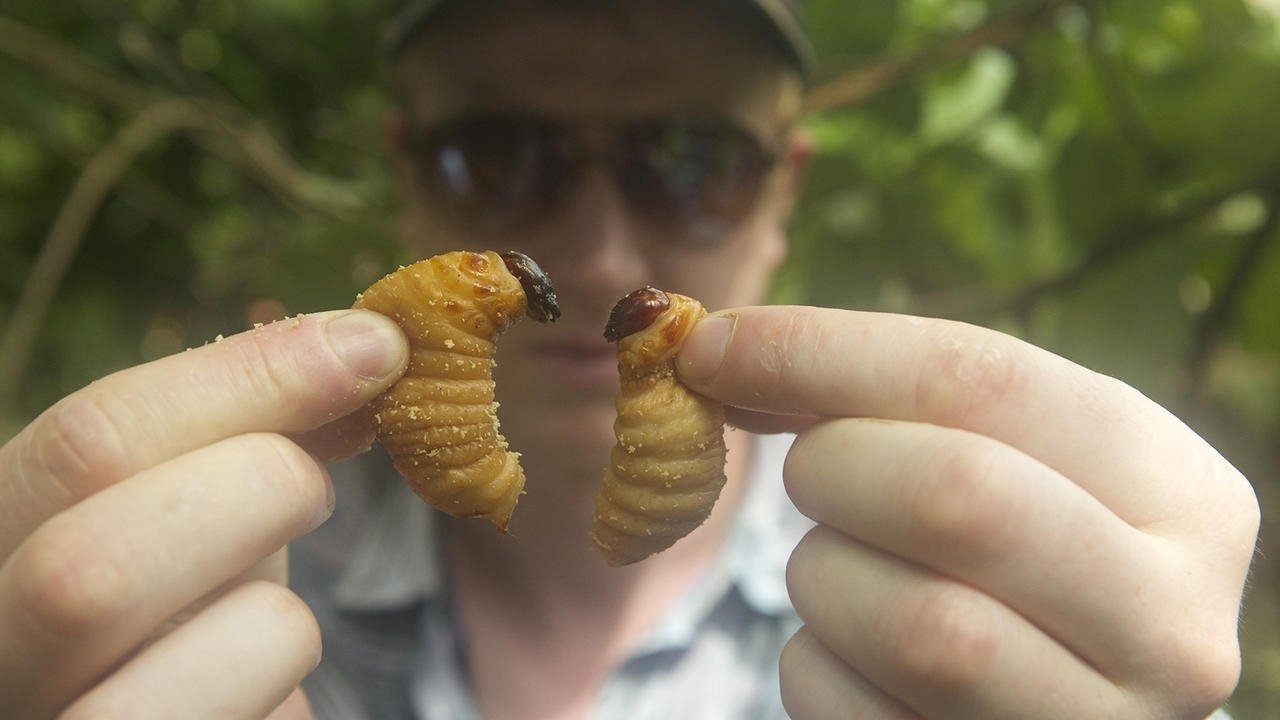
Although scientists and agribusiness have started touting edible insects as the future of sustainable food, the notion of eating bugs hasn’t exactly gained much popularity among the general public. Head Chef Ben Reade and Lead Researcher Josh Evans from the Nordic Food Lab in Denmark are looking to change that. With a focus on food diversity and deliciousness, they set out on a globe-trotting mission to take on the politics of the palate, sampling grubs in the Australian outback, pillaging giant wasp nests in Japan and attending food expos where entrepreneurs pitch their flavorless farmed crickets. Along the way, they put their own haute cuisine spin on local insect delicacies, whipping up dishes like cricket and grasshopper ravioli, maggot cheese gelato and bee larva ceviche.
Himself

07 Jan 2023

Filmed on January 5, 2023.4 friends travel the streets of Queens, NY.

08 Oct 2025

A group of students interviews customers of an organic store about their eating habits.
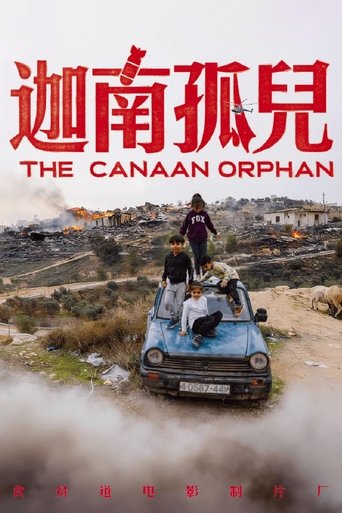
18 Jan 2024

No overview found
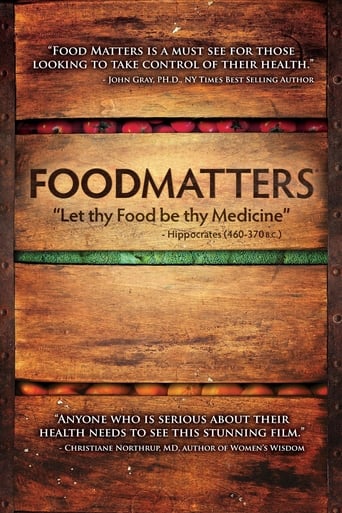
08 Oct 2010

With nutritionally-depleted foods, chemical additives and our tendency to rely upon pharmaceutical drugs to treat what's wrong with our malnourished bodies, it's no wonder that modern society is getting sicker. Food Matters sets about uncovering the trillion dollar worldwide sickness industry and gives people some scientifically verifiable solutions for curing disease naturally.
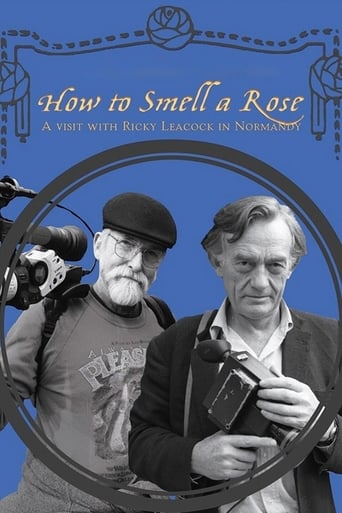
31 Aug 2014

In the year 2000, Les Blank, along with co-filmmaker Gina Leibrecht, visited Richard Leacock (1921-2011) at his farm in Normandy, France and recorded conversations with him about his life, his work, and his other passion: cooking! With the flair of a seasoned raconteur, Leacock recounts key moments in his seventy years as a filmmaker and the innovations that he, D.A. Pennebaker, Albert Maysles and others invented that revolutionized documentary filmmaking, and explores the mystery of creativity. With the passing of both Blank and Leacock, the documentary is a moving insight into the lives of two seminal figures in the history of film.

02 May 2016

Two elderly sisters share the delicate art of making traditional Hungarian strudel and reveal a deeply personal family story about their mother, who taught them everything they know.
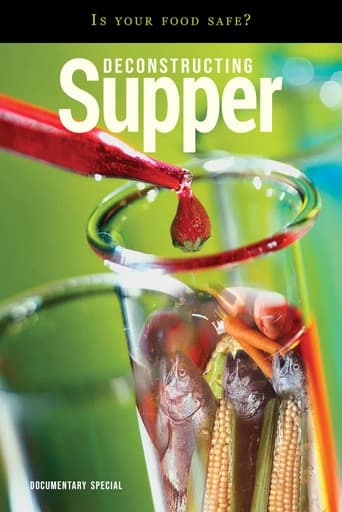
01 Jan 2002

Deconstructing Supper is a ride every contemporary eater will want to take, a thought-provoking and entertaining journey into the revolution in modern food production, and its effects on our lives.
01 Jan 2010
In Acadie, the only “real” tea is King Cole, blended in New Brunswick for the past 100 years. Traditionally drunk with a spot of Carnation condensed milk, it recalls simpler days when people would take the time to stop and smell… the tea. Infusion is a playful look at this tradition, its many symbols, and the memories it stirs. Some say a cup of tea promotes frank discussion and helps clear up misunderstandings; others swear they can read the future in the leaves left at the bottom. Perhaps there really is something magical about tea…

07 Sep 2008

Documentary filmmaker Robert Kenner examines how mammoth corporations have taken over all aspects of the food chain in the United States, from the farms where our food is grown to the chain restaurants and supermarkets where it's sold. Narrated by author and activist Eric Schlosser, the film features interviews with average Americans about their dietary habits, commentary from food experts like Michael Pollan and unsettling footage shot inside large-scale animal processing plants.
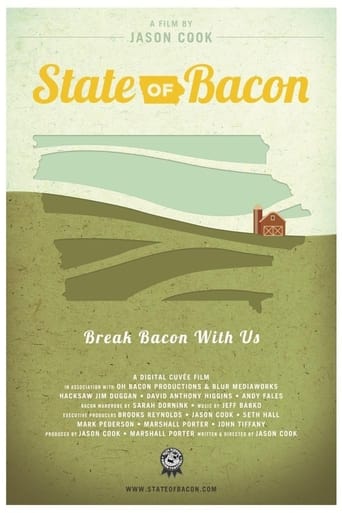
15 May 2014

State of Bacon tells the kinda real but mostly fake tale of an oddball group of characters leading up to the annual Blue Ribbon Bacon Festival. Bacon-enthusiasts, Governor Branstad, a bacon queen, Hacksaw Jim Duggan, members of PETA, and an envoy of Icelanders are not excluded from this bacon party and during the course of the film become intertwined with the organizers of the festival to show that bacon diplomacy is not dead.
01 Oct 2013
Sweat, sun, rain, tears, and green thumbs are all part of the challenge for a young couple attempting to become full-time organic farmers in this illuminating doc.
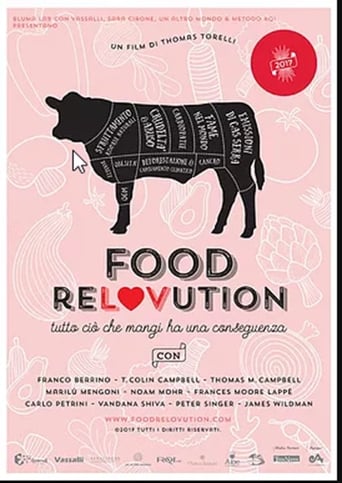
14 Jan 2017

“Food Relovution: What We Eat Can Make A Difference” is an eye-opening and compelling feature documentary that examines the consequences of the meat culture as concerns grow about health, world hunger, animal welfare and the environmental cost of livestock production. It aims to show how these global issues affect everyone and are interrelated, and how making our food choices with a sense of awareness, knowing what we are buying and what we are eating is the first fundamental step towards a better world.
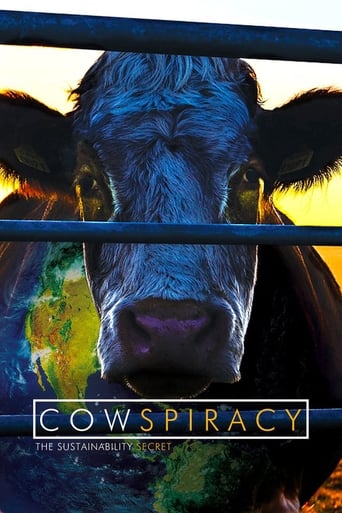
01 Jul 2014

Follow the shocking, yet humorous, journey of an aspiring environmentalist, as he daringly seeks to find the real solution to the most pressing environmental issues and true path to sustainability.
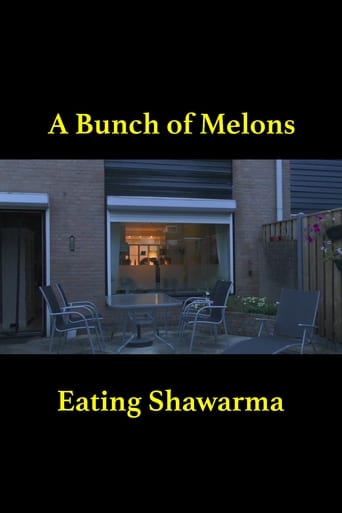
07 Sep 2017

A short documentary concerning a group of friends who get together, eat shawarma and drink beer. They talk utter nonsense at times, yet they couldn't be happier.

26 Feb 2024

The film exposes the links between Agrifood and politics. With a pool of international experts it analyses the many problems related to factory farming: water pollution, migrants exploitation, biodiversity loss and antibiotic resistance.
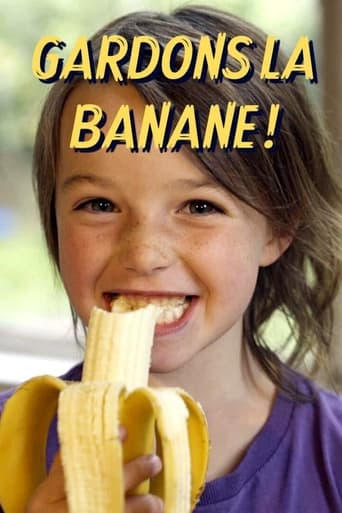
26 Oct 2021

No overview found
01 Jan 1952
No overview found

04 Oct 2011

No overview found

04 Feb 2022

In Breaking Bread, exotic cuisine and a side of politics are on the menu. Dr. Nof Atamna-Ismaeel - the first Muslim Arab to win Israel's MasterChef - is on a quest to make a social change through food. And so, she founded the A-sham Arabic Food Festival in Haifa. There, pairs of Arab and Jewish chefs collaborate on mouthwatering dishes like kishek (a Syrian yogurt soup), and qatayef (a dessert typically served during Ramadan), as we savor the taste of hope and discover the food of their region free from political and religious boundaries.

10 Sep 2005

A documentary that exposes the shocking truths behind industrial food production and food wastage, focusing on fishing, livestock and crop farming. A must-see for anyone interested in the true cost of the food on their plate.